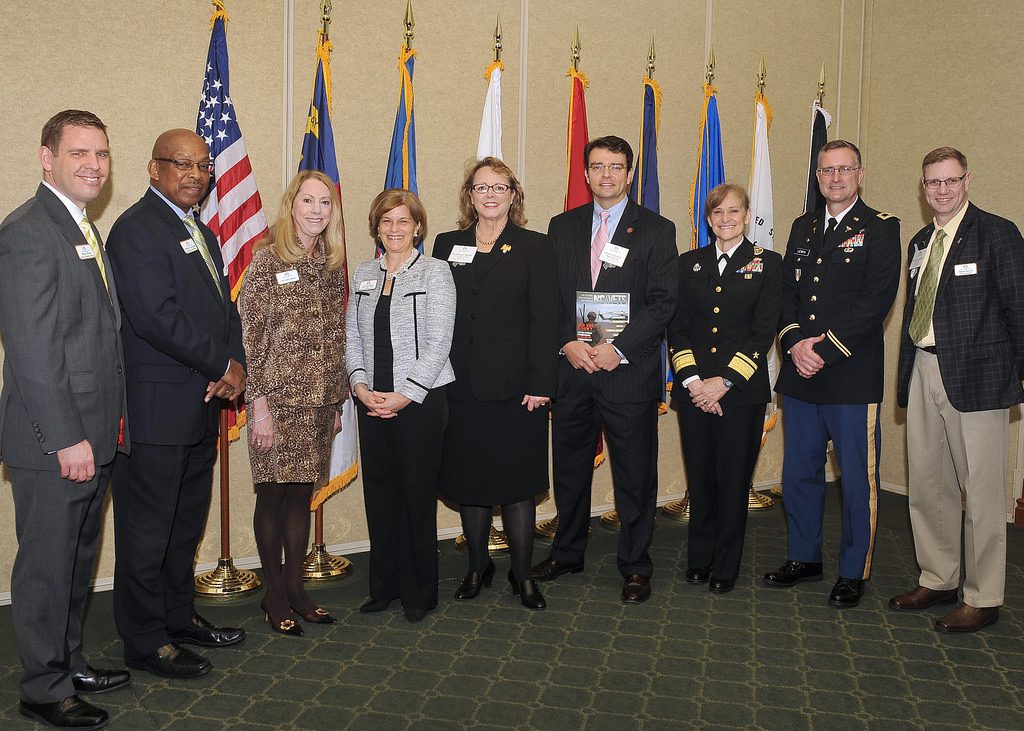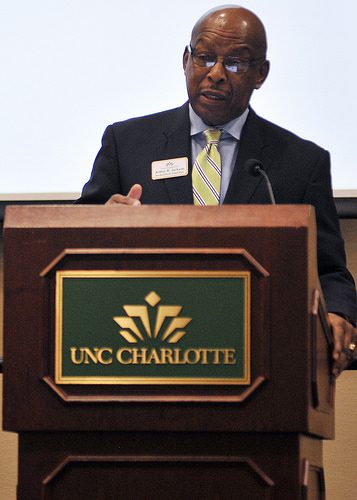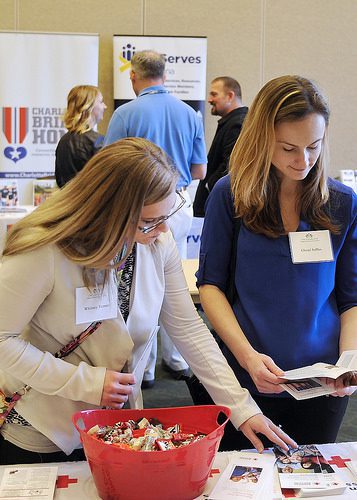2016 Conference
A daylong conference brought top experts to UNC Charlotte’s campus to discuss strategies to serve veterans transitioning from active military to civilian lives.
National and state experts, students, faculty, service providers and members of the general public joined in a dialogue on military culture and the need to join forces to support veterans.
Keynote speakers for the conference were Martha Herb, U.S. Navy and director of the Inter-American Defense College; Paul Lewis, a U.S. Army colonel and senior nursing scientist at Womack Army Hospital; and Ilario Pantano, assistant secretary for veterans affairs, N.C. Department of Military and Veterans Affairs, and a former U.S. Marine Corps second lieutenant.
“Serving in the military is a high-risk occupation with exposures known to cause morbidity and mortality,” said Lewis. “As a clinician, asking the simple screening question of ‘Have you ever served in the military?’ will help to quickly identify potential health risks of the person sitting in front of you.”
The state’s large military presence underscores the need to make veterans’ services a priority, noted Pantano. “North Carolina is home to more than 800,000 veterans and the third largest military force in the United States,” he said. “Meeting the needs of service members, veterans and families requires interagency cooperation and collaboration.”
A series of breakout sessions at featured presenters from community organizations and the University who will discuss military culture and implications for practice. Two of these sessions were panel discussions, one composed of community clinicians and the other of veteran students. Special emphasis was placed on the “Have You Ever Served?” clinical assessment geared to understanding the health needs of veterans and their families.
The conference featured a research poster session, community services vendor fair and art exhibit that provided an opportunity for participants to better understand military culture and implications for education and practice based on scholarly work conducted at UNC Charlotte and community organizations.


